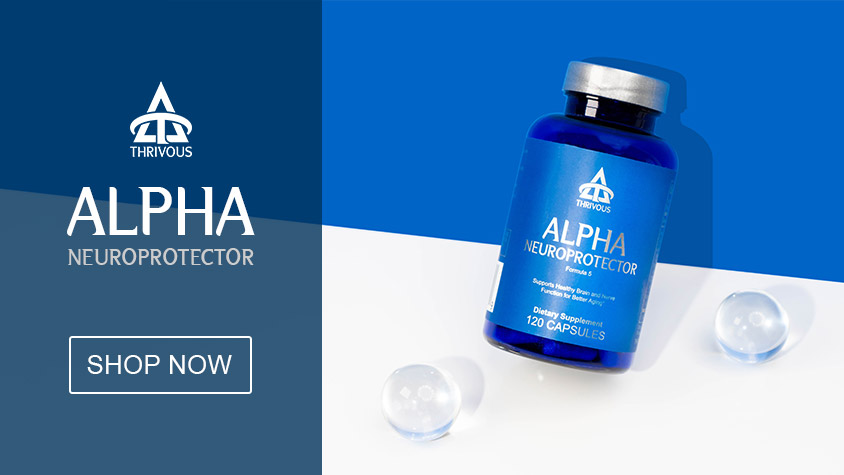Protect Your Brain with Acetyl-L-Carnitine

Acetyl-L-Carnitine (ALCAR) is a compound that occurs naturally in the human body, where it is involved in energy metabolism and mitochondrial protection. Supplementation of Acetyl-L-Carnitine may be neuroprotective, reducing cerebral toxins and decreasing mental fatigue, according to these clinical studies on humans:
- Acetyl-L-carnitine Improves Cognitive Functions In Severe Hepatic Encephalopathy: A Randomized And Controlled Clinical Trial. In 2011, this study found that Acetyl-L-Carnitine supplementation resulted in "the improvement of cognitive deficits, the reduction of ammonia".
- Oral Acetyl-L-carnitine Therapy Reduces Fatigue In Overt Hepatic Encephalopathy: A Randomized, Double-blind, Placebo-controlled Study. In 2011, this study found that Acetyl-L-Carnitine supplementation resulted in "a decrease in the severity of both mental and physical fatigue and an increase in physical activity".
- Acetyl-L-carnitine reduces depression and improves quality of life in patients with minimal hepatic encephalopathy. In 2011, this study found that Acetyl-L-Carnitine "treatment is associated with significant improvement in patient energy levels, general functioning and well-being [and] the improvement of quality of life is associated with reduction of anxiety and depression".
- Clinical outcomes and low-dose levocarnitine supplementation in psychiatric inpatients with documented hypocarnitinemia: a retrospective chart review. In 2010, this study found that Acetyl-L-Carnitine supplementation "was associated with overall improved behavioral, cognitive, and motor functioning".
- Acetyl-L-carnitine Treatment In Minimal Hepatic Encephalopathy. In 2008, this study found that "the benefits of [Acetyl-L-Carnitine] in comparison with placebo are demonstrated in greater reductions in serum ammonia levels, as well as in improvements of neuropsychological functioning".
- Acetyl L-carnitine (ALC) treatment in elderly patients with fatigue. In 2008, this study found that Acetyl-L-Carnitine supplementation "may reduce both physical and mental fatigue in elderly and improves both the cognitive status and physical functions".
- L-Carnitine treatment reduces severity of physical and mental fatigue and increases cognitive functions in centenarians: a randomized and controlled clinical trial. In 2007, this study found that Acetyl-L-Carnitine "facilitates an increased capacity for physical and cognitive activity by reducing fatigue and improving cognitive functions".
- Exploratory open label, randomized study of acetyl- and propionylcarnitine in chronic fatigue syndrome. In 2004, this study found that "Acetylcarnitine significantly improved mental fatigue".
One way to improve the nootropic effect of Acetyl-L-Carnitine may be to combine it with a source of choline, such as Alpha-GPC. ALCAR and choline supplementation in combination may be more bioavailable, according to these studies:
- Decreasing oxidative stress with choline and carnitine in women. In 2005, this study found that “Choline and carnitine supplementation lowers lipid peroxidation, and promotes conservation of retinol and alpha-tocopherol in free-living women”.
- Carnitine and Choline Supplementation with Exercise Alter Carnitine Profiles, Biochemical Markers of Fat Metabolism and Serum Leptin Concentration in Healthy Women. In 2003, this study found that "choline-induced decrease in serum and urinary carnitine is buffered by carnitine preloading".
- Choline supplementation reduces urinary carnitine excretion in humans. In 1996, this study found that “supplementary choline maintained serum carnitine concentrations by conserving urinary carnitine”.
- Choline supplementation alters carnitine homeostasis in humans and guinea pigs. In 1995, this study found that “choline supplementation results in decreased urinary excretion of carnitine in young adult women”.
Another way to improve the nootropic effect of Acetyl-L-Carnitine may be to combine it with Alpha-Lipoic Acid. ALCAR and Alpha-Lipoic Acid supplementation in combination may improve neuroprotection, according to this clinical study review:
- Acetyl-L-carnitine and alpha-lipoic acid: possible neurotherapeutic agents for mood disorders? In 2008, this review observed that “L-carnitine and alpha-lipoic acid may offer neurotherapeutic effects (e.g., neurocognitive enhancement) via disparate mechanisms including antioxidant, anti-inflammatory, and metabolic regulation”.
Thrivous Alpha
Based in part on the studies cited above, Thrivous developed Alpha Neuroprotector. Each serving provides a clinical dose of Acetyl L Carnitine, as well as clinical doses of Alpha GPC and R Alpha Lipoic Acid. Alpha is available for purchase online in the Thrivous store.
More Articles
Read more articles at Thrivous, the human enhancement company. You can browse recent articles in Thrivous Views. See other Geroprotectors, Nootropics or Product Ingredient articles. Or check out an article below.
-
Spectacular Advances for Brain Interfacing
This is a double issue of Pulse: I skipped last week’s issue. I have this to say in my defense: ...
-
Alpha-GPC for Healthy Brain Aging
Alpha-GPC, also known as alpha-glycerophosphocholine or choline alfoscerate, is a choline compound that occurs naturally in the human brain. Supplementation with Alpha-GPC ...



